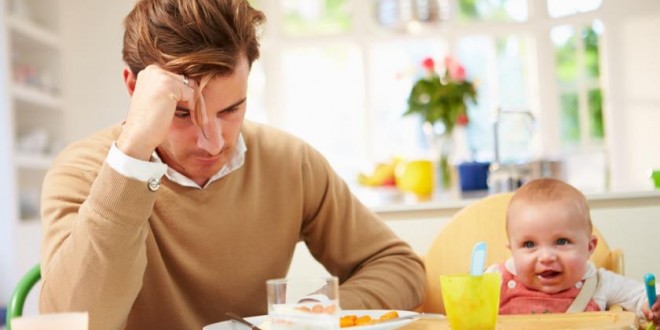A significant number of men on the verge of becoming fathers get depressed during their partner’s pregnancy, a new study from the Research Institute of the McGill University Health Centre suggests.
A team from the Research Institute of the McGill University Health Centre (RI-MUHC) sheds light on fathers’ mental health by releasing the first study to report the prevalence of antenatal depression symptoms among Canadian men. The findings, which have been published in The American Journal of Men’s Health, show that a significant number of first-time expectant fathers experience depression during their partner’s pregnancy. This may have important clinical implications for depression screening and early prevention efforts in expectant fathers.
“The mental health of men remains a neglected area of research and one that is not adequately addressed during the transition to parenthood,” says senior author, Dr. Deborah Da Costa, researcher in the Division of clinical epidemiology at the RI-MUHC and associate professor in the Department of Medicine at McGill University. “Highlighting these findings in Canada increases awareness in expectant parents, new parents, and importantly in healthcare providers who are in contact with expectant couples during prenatal appointments.”
The research team recruited 622 men in Quebec over a period of one and half years. Expectant fathers completed online questionnaires measuring various factors such as mood, physical activity, sleep quality, social support, marital adjustment, financial stress, and demographics, during their partner’s third semester. Researchers found that 13.3 per cent of expectant fathers experienced elevated levels of depressive symptoms during their partner’s pregnancy.
Most of the factors associated with depression in men were identified to be modifiable, meaning that tools are available to help cope with these difficulties. For the first time in this area, researchers also looked at sleep in relation to depression and found that men who were having sleep difficulties were more at risk of experiencing depression.
“These are important signals because some of these factors may worsen in postpartum; certainly sleep will be compromised in the first years,” explains Dr. Da Costa who is also a researcher from the Experimental Therapeutics and Metabolism Program at the RI-MUHC. “We know that antenatal depression is the strongest predictor for postnatal depression. So teaching fathers and screening for this early on, can be beneficial in terms of decreasing the risk or the continuation of depression postpartum.”
Agencies/Canadajournal
 Canada Journal – News of the World Articles and videos to bring you the biggest Canadian news stories from across the country every day
Canada Journal – News of the World Articles and videos to bring you the biggest Canadian news stories from across the country every day



